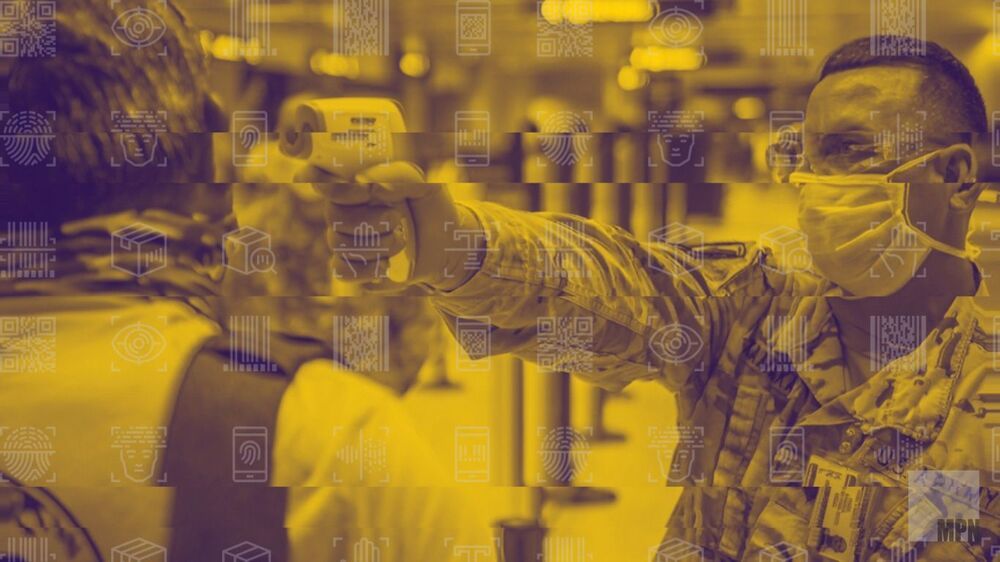The legal rights of robots have expanded, at least in Pennsylvania. There, autonomous delivery drones will be allowed to maneuver on sidewalks and paths as well as roadways and will now technically be considered “pedestrians.” It’s the latest change in the evolving relationship between autonomous vehicles and humans.
Category: law – Page 61


Google and Facebook: the landmark Australian law that will make them pay for news content
“The Australian parliament is poised to pass a landmark media law that would make Google and Facebook pay news publishers for displaying their content. The Australian law is separate to a deal Facebook made to pay mainstream UK news outlets millions of pounds a year to license their articles, but has a similar motivation. The legislation, which will be debated this week, is designed to support Australian public interest journalism and is backed by all the nation’s media companies, big and small.”
Despite protestations from both companies, the Australian parliament is set to pass legislation it says is needed to boost public interest journalism.

Social media must not be allowed to destroy democracy, says the EU President
All governments across the globe are the same they don’t want a free flow of information that would challenge their authority and decisions that they think are good for us, maybe because they want to maintain law and order in society.
I am against the control of social media by the government and I am also against the algorithms which are designed to make people addicted to social media by showing the thing that appeals most to them for profit.
What are your opinions on this topic, how we can achieve the balance between these challenging aspects of social media use?
In case you missed it at Davos, Ursula von der Leyen’s call for safer social media. 📕.
The man behind Fortnite is making the riskiest bet of his career. The payoff could be huge
Now Sweeney, 50, is embarking on the biggest battle in his company’s 30-year history: Epic is suing Apple and Google in a legal challenge that could remake the future of the digital economy.
Over the course of his career Tim Sweeney has been unafraid to take on tech industry giants.

The Empowering Neurologist — David Perlmutter M.D., and Dr. David Sinclair
Fair to say that we all assume that aging is inevitable. In reality however, there is no biological law that says we must age. Over the years we’ve seen a variety of theories proposed to explain why we age including the accumulation of damage to our DNA, the damaging effects of chemicals called “free radicals, changes in the function of our mitochondria, and so many others.
Our guest today, Dr. David Sinclair, believes that aging is related to a breakdown of information. Specifically, he describes how, with time, our epigenome accumulates changes that have powerful downstream effects on the way our DNA functions. Reducing these changes to the epigenome is achievable and in fact, even taking it further, his research now reveals that the epigenome can be reprogrammed back to a youthful state.
David A. Sinclair, PhD, AO is Professor of Genetics at Harvard Medical School, and is the author of Lifespan — Why We Age and Why We Don’t Have To. He is the Founding Director of the Paul F. Glenn Center for the Biological Mechanisms of Aging at Harvard. One of the leading innovators of his generation, he is listed by TIME magazine as one of the “100 most influential people in the world” (2014) and top 50 most important people in healthcare (2018). He is a board member of the American Federation for Aging Research, a Founding Editor of the journal Aging, and has received more than 35 awards for his research on resveratrol, NAD, and reprogramming to reverse aging, which have been widely hailed as major scientific breakthroughs and are topics we discuss in our time together.
In 2018, Dr. Sinclair became an Officer of the Order of Australia, the equivalent of a knighthood, for his work on national security matters and human longevity. Dr. Sinclair and his work have been featured on 60 Minutes, Today, The Wall Street Journal, The New York Times, Fortune, and Newsweek, among others.
In closing, I really need to say that Lifespan (https://amzn.to/3sSoCNS) ranks as one of the most influential books I have ever read. Please enjoy today’s interview.
To stay current on Dr. Sinclair, follow him on Twitter (https://twitter.com/davidasinclair) and Instagram (https://www.instagram.com/davidsinclairphd/)

Experts Warn Civil Rights Fallout from COVID Could be Far Worse Than the Pandemic Itself
Ditto for Canada…
As US President Biden signs a national mask mandate into law, measures being imposed in the name of protecting public health could create a humanitarian crisis that sees Americans sued by the state and forced into detention camps for breaking pandemic protocols.
The very first executive order Joe Biden signed upon becoming the forty-sixth President of the United States was the national mask mandate he promised at the Democratic National Convention back in August. The order makes face coverings and social distancing mandatory on all federal property and a legal requisite for interstate commerce.

DARPA Increases Access to Critical Tools, IP to Accelerate Innovation
New initiative aims to lower high barrier to entry for resource-constrained organizations, increasing access to participate in forward-looking research.
Like.
Comment.
As the world continues to change and advance at a rapid pace, the need for continuous innovation has never been greater. DARPA’s open innovation model leverages the expertise and novel ideation found in large and small businesses, government organizations, and academic institutions. However, resource constraints across these organizations can limit their participation in cutting-edge research opportunities. Within the microelectronics arena in particular, skyrocketing costs for designing integrated circuits are stifling participation in the innovation process.
To help remove potential roadblocks to further increasing the speed of innovation, the agency today announced DARPA Toolbox – a new, agency-wide effort to provide open licensing opportunities with commercial technology vendors to the researchers behind DARPA programs. Through DARPA Toolbox, successful proposers will receive greater access to commercial vendors’ technologies and tools via pre-negotiated, low-cost, non-production access frameworks and simplified legal terms. For commercial vendors, DARPA Toolbox will provide an opportunity to leverage the agency’s forward-looking research and a chance to develop new revenue streams based on programmatic achievements developed with their technologies.
“DARPA performers are frequently encumbered by having to negotiate access to tools, IP, and services, and execute complex legal agreements that take the time away from what they do best – advancing science to benefit the nation,” said Serge Leef, the Microsystems Technology Office (MTO) program manager spearheading this effort. “Through DARPA Toolbox, we are working to effectively lower the high barrier to entry with the goal of encouraging more proposals from non-traditional and resource-constrained organizations that can bring innovative insights and ideas to bear on DARPA programs.”
Police Robots Are Not a Selfie Opportunity, They’re a Privacy Disaster Waiting to Happen
The arrival of government-operated autonomous police robots does not look like predictions in science fiction movies. An army of robots with gun arms is not kicking down your door to arrest you. Instead, a robot snitch that looks like a rolling trash can is programmed to decide whether a person looks suspicious —and then call the human police on them. Police robots may not be able to hurt people like armed predator drones used in combat— yet —but as history shows, calling the police on someone can prove equally deadly.
Long before the 1987 movie Robocop, even before Karel Čapek invented the word robot in 1920, police have been trying to find ways to be everywhere at once. Widespread security cameras are one solution—but even a blanket of CCTV cameras couldn’t follow a suspect into every nook of public space. Thus, the vision of a police robot continued as a dream, until now. Whether they look like Boston Dynamics’ robodogs or Knightscope’s rolling pickles, robots are coming to a street, shopping mall, or grocery store near you.
The Orwellian menace of snitch robots might not be immediately apparent. Robots are fun. They dance. You can take selfies with them. This is by design. Both police departments and the companies that sell these robots know that their greatest contributions aren’t just surveillance, but also goodwill. In one brochure Knightscope sent to University of California-Hastings, a law school in the center of San Francisco, the company advertises their robot’s activity in a Los Angeles shopping district called The Bloc. It’s unclear if the robot stopped any robberies, but it did garner over 100000 social media impressions and Knightscope claims the robot’s 193 million overall media impressions was worth over $5.8 million. The Bloc held a naming contest for the robot, and said it has a “cool factor” missing from traditional beat cops and security guards.